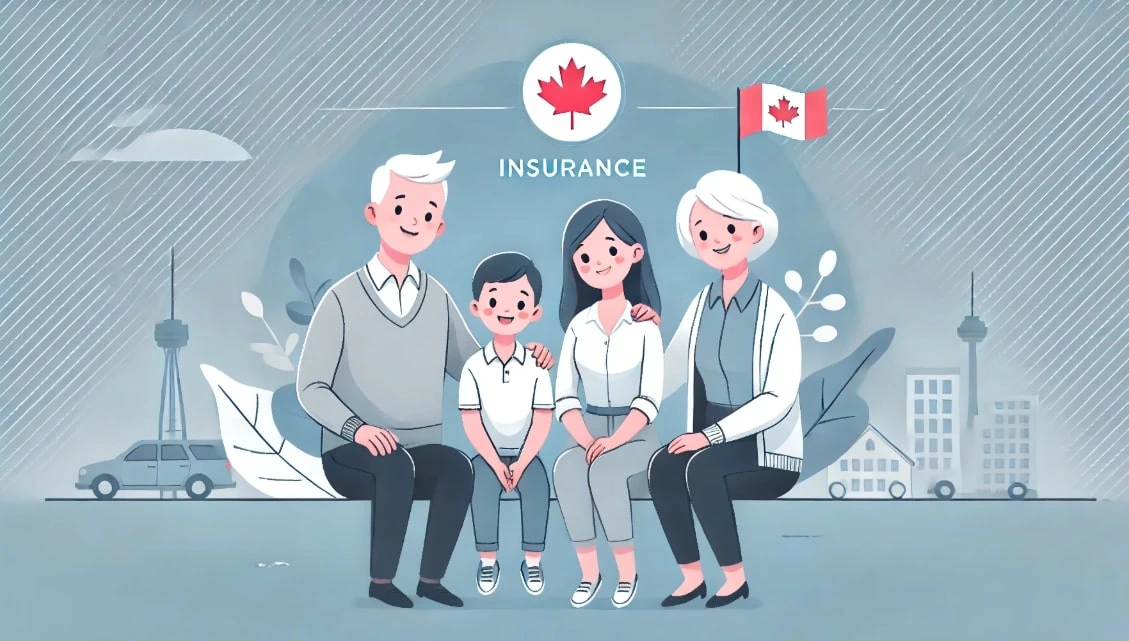
Canada’s Super Visa program is a popular option for families who want their parents or grandparents to visit for extended periods — up to five years per entry. However, one of the most important and mandatory parts of the Super Visa application is private health insurance. This requirement gives rise to an important question: What affects Super Visa insurance rates?
If you’re exploring Super Visa insurance costs and want to understand how prices are calculated, this guide breaks down every factor in detail — helping families make informed and budget-conscious decisions.
What Is Super Visa Insurance?
Before we dive into the cost breakdown, let’s quickly review what Super Visa insurance actually is.
Super Visa insurance is a private health insurance policy required by Immigration, Refugees and Citizenship Canada (IRCC) for Super Visa applicants. The policy must:
- Provide a minimum of $100,000 CAD in emergency medical coverage
- Be valid for at least one year
- Be purchased from a Canadian insurance provider
- Be fully paid upfront — not just a quote
The insurance ensures that visiting parents or grandparents won’t place a burden on Canada’s public healthcare system and are financially protected during their stay.
Key Factors That Affect Super Visa Insurance Rates
1. Age of the Applicant
The age of the parent or grandparent is the most significant factor affecting Super Visa insurance rates. Older applicants are statistically at higher risk for health issues, which increases the cost of insurance.
General Cost Estimate by Age (for $100,000 coverage):
➡️ Tip: If your parent is close to a new age bracket, it might make financial sense to apply sooner.
2. Pre-Existing Medical Conditions
If the applicant has any pre-existing medical conditions (e.g., diabetes, high blood pressure, heart disease), expect to pay more for coverage — especially if you want those conditions included.
Policies often require a condition to be “stable” for 90 to 180 days before travel to be eligible for coverage.
- With pre-existing condition coverage: Add 20–50% to base premium
- Without coverage: Standard rate, but the condition is excluded from claims
➡️ Pro Tip: Always disclose pre-existing conditions honestly. Failure to do so could void the entire policy.
3. Coverage Amount
Super Visa insurance policies usually offer coverage from $100,000 to $300,000 CAD. The higher the coverage, the higher the premium.
➡️ Advice: If your parent is older or has health risks, opting for higher coverage might be worth the added cost.
4. Policy Duration
Although IRCC requires a minimum of one year of coverage, you can buy policies for longer durations or renewals depending on the visit length. Longer policies naturally cost more.
However, you may get discounts on multi-year policies, and you can typically cancel the unused portion if your parent leaves Canada early.
➡️ Smart Move: Buy a one-year policy with refund eligibility if your plans are uncertain.
5. Deductible Amount
A deductible is the amount the insured person must pay out-of-pocket before the insurance kicks in. Choosing a higher deductible can significantly lower your Super Visa insurance cost.
➡️ Balance your risk: A $0 deductible means full coverage but a higher upfront premium. Higher deductibles lower the premium but increase out-of-pocket costs during emergencies.
6. Insurance Provider
Different Canadian insurance companies offer different Super Visa insurance rates. Each company uses its own risk model, pricing structure, and policy options.
Popular providers include:
- Manulife
- Tugo
- GMS (Group Medical Services)
- Allianz
- Blue Cross
- Travelance
➡️ Suggestion: Always get at least 3 quotes and compare coverage, not just cost.
7. Monthly Payment Option
Some insurers now offer monthly Super Visa insurance plans, which may make budgeting easier. However:
- You must still pay upfront for the full policy for the Super Visa application
- Monthly plans often come with admin fees or slightly higher premiums
➡️ Tip: Look for plans that allow full upfront payment with monthly refund options in case your parent leaves Canada early.
Ways to Save on Super Visa Insurance
- ✅ Apply early — lock in rates before birthdays
- ✅ Shop around — compare quotes from multiple providers
- ✅ Use a broker — they often get better group rates
- ✅ Consider higher deductibles if you’re comfortable with the risk
- ✅ Choose annual plans with refund options in case plans change
Frequently Asked Questions
Q1: Can Super Visa insurance be refunded if the visa is denied?
Yes. Most providers offer a full refund with proof of rejection, as long as the policy hasn’t been used.
Q2: Is travel insurance the same as Super Visa insurance?
No. Super Visa insurance must meet specific IRCC guidelines, which regular travel insurance usually does not.
Q3: Can I renew the insurance if my parent stays longer?
Yes, policies can be renewed or extended if your parent remains in Canada beyond the first year.
Final Thoughts
Understanding the factors that influence Super Visa insurance rates is essential for choosing the right plan and managing your budget. From age and health status to deductible and provider, multiple elements shape the total Super Visa insurance cost.
By comparing rates and understanding what affects pricing, you can find a policy that gives your family both financial protection and peace of mind during a long-awaited visit.